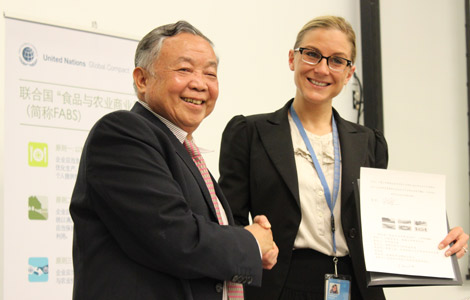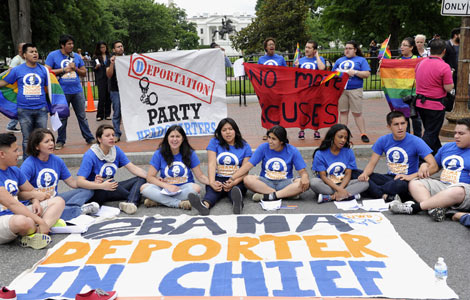Scholar's experiment turns into business
Updated: 2014-06-10 03:59
By AMY HE in New York (China Daily USA)
|
||||||||
|
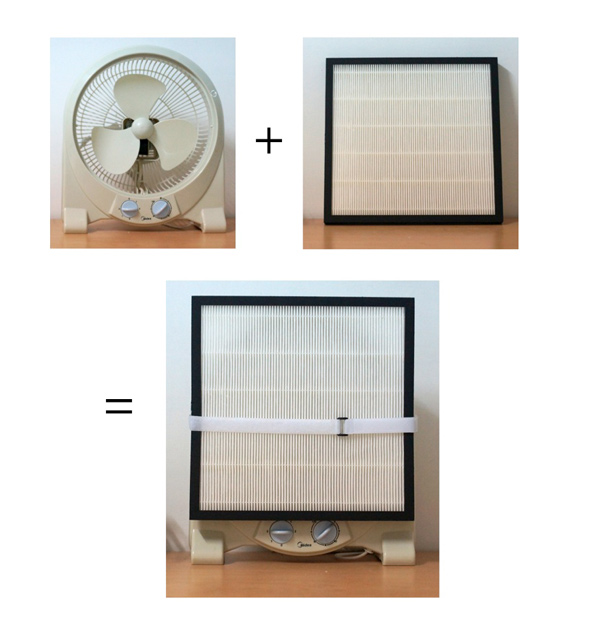 Thomas Talhelm, PhD candidate at the University of Virginia, experimented with a do-it-yourself air purifier that consists of strapping a filter to a fan. He founded Smart Air Filters last year, which sells the purifiers to customers for 200 RMB ($32), a fraction of what big-name brands charge. [Photo / Provided to China Daily by Thomas Talhelm] |
Thomas Talhelm doesn't have asthma, but if he doesn't wear a mask when he bikes around Beijing, the 28-year-old PhD student often feels like he does have a breathing problem.
Beijing's air pollution has long been a pressing concern for residents and things got drastically worse in early 2013, with the expat community dubbing it the "Airpocalypse" when the city's air-pollution levels hit record highs. So when Talhelm was in China for a year on a Fulbright scholarship doing research, he considered getting an air purifier.
"At that point, I started to worry about the air inside my home. Before it was always, 'Well, I'll worry about the outside.' But the air was just so thick, so bad, that even if it was half as bad inside, it's still really bad," he told China Daily.
One of the first models he considered purchasing cost 11,000 yuan ($1,762), and not only that, to most effectively purify the air in homes, people typically get more than one unit: one for the bedroom and another in the living room. Talhelm was going to be in China for only eight more months, and this, on top of purchasing expensive replacement filters, seemed like a big, costly hassle, he said.
Talhelm did research on what air purifiers consist of and it boiled down to something as simple as a fan and a high-efficiency particular air (HEPA) filter, he said, and would cost a fraction as much.
"I could have afforded it if I really wanted it, but the point to me was, does it need to be this expensive? Why is this being sold for so much money? If I had researched it and found that it needs to cost that much, then I probably would've just bought it," said the University of Virginia social psychology PhD candidate.
HEPA filters remove more than 99 percent of 0.3 micron-sized particles in the air. Many manufacturers in China produce HEPA filters, so Talhelm bought one, strapped it to a fan, and started running tests to see how effective it was at getting rid of particles in the air inside his home in Beijing. With a laser particle counter, Talhelm saw that when the filter was on, the number of particles in the air went down drastically.
He connected with an environmental group in Beijing, the Beijing Energy Network, to share his experiment's results so that he could spread the word and the response was "crazy", he said.
"It was clear that what was needed in the market was a reasonably-priced air filter so that people who just want clean air, can just get clean air without getting ripped off, without paying tons and tons of money," he said.
Talhelm, who was in China to study the effects of farming on Chinese culture, said he never intended to start an air filter business. But the workshops he held drew a lot of interest, enough to prompt him to start a website, SmartAirFilters.com, with a friend and they started buying fans and filters in bulk to sell them to customers.
The air purifiers can be purchased assembled at 200 yuan ($32) and a stronger unit costs 450 yuan ($72), or the individual parts can be purchased separately. The company started selling its purifiers last September and ships about 50 to 200 units a week now, according to Talhelm. When the air quality gets really bad — like it did at the beginning of 2014 in Beijing and Shanghai — orders skyrocket, he said. Smart Air Filters has five full-time employees to help ship the products and is based in Beijing.
The product was popular with the expat community when Talhelm first introduced it, and it has since become more popular with Chinese as they become educated about the Smart Air filter, and particularly after the company opened its own Taobao store, a big e-commerce portal similar to the US' eBay.
"Expats are more concerned about their health. They also have a much more of a clear contrast, what the sky should look like and what it looks like today. There's also more of a sense of maybe faith in technology — faith that this is something that a product can get rid of," Talhelm said, "which is part of the reason why I wanted to do these workshops and why we've done workshops in Chinese. Part of this is education, and showing people that you can dramatically reduce the particulate pollution in your home with a simple tool."
|
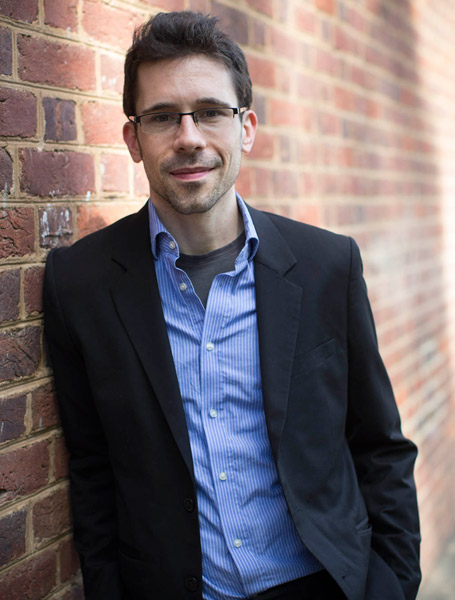 Thomas Talhelm, PhD candidate at the University of Virginia, founded Smart Air Filters last year. The company makes air purifiers out of a fan and a filter for 200 RMB ($32), which costs a fraction of what big-name brands charge.[Sanjay Suchak / Provided to China Daily] |
- Ministry: Public awareness behind air pollution tips
- China inspects enforcement of air pollution law
- China allocates funds for air pollution control
- WHO report says Delhi has worst air pollution
- Harsher air pollution penalties sought
- 100 cases of air pollution fined in March
- Shanghai must act on its air pollution
- Fight Air Pollution

 United goes direct to China
United goes direct to China
 China-Russia-US triangle discussed in Washington
China-Russia-US triangle discussed in Washington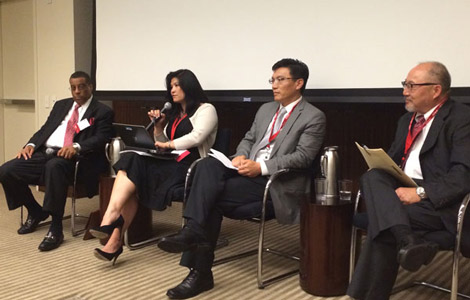
 Asian Americans see moving up US corporate ladder as difficult
Asian Americans see moving up US corporate ladder as difficult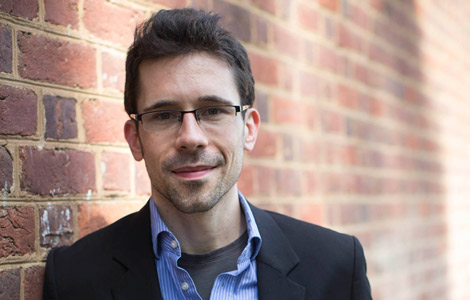
 Expat's experiment turns into anti-pollution business
Expat's experiment turns into anti-pollution business
 Miss Nevada crowned as Miss USA
Miss Nevada crowned as Miss USA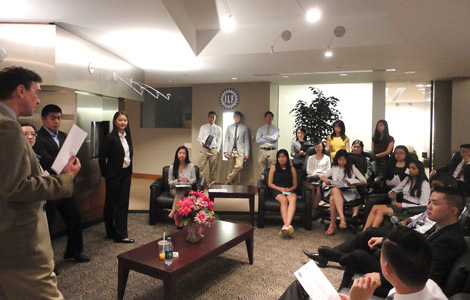
 Youths begin Internships
Youths begin Internships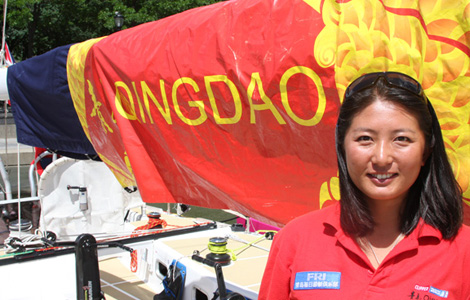
 Qingdao native aims to make sailing history
Qingdao native aims to make sailing history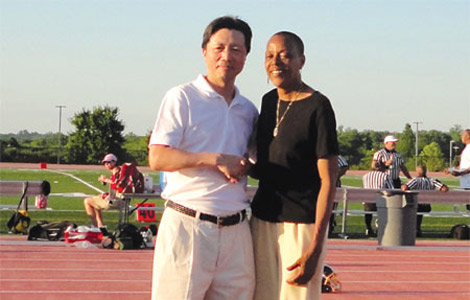
 History-making game recalled
History-making game recalled
Most Viewed
Editor's Picks

|

|

|

|

|
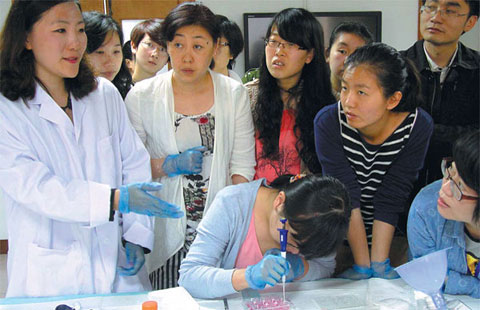
|
Today's Top News
Chinese IPOs lead US offers in returns by 19%
US pianist releases Chinese piano music album
Russia warns against military buildup by NATO
Iran, US set to deliberate on nuclear issue
UN asked to weigh in on S China Sea
US governor deepens China ties
Pentagon report on China 'biased'
Baidu gets ex-Google scientist Ng
US Weekly

|

|
